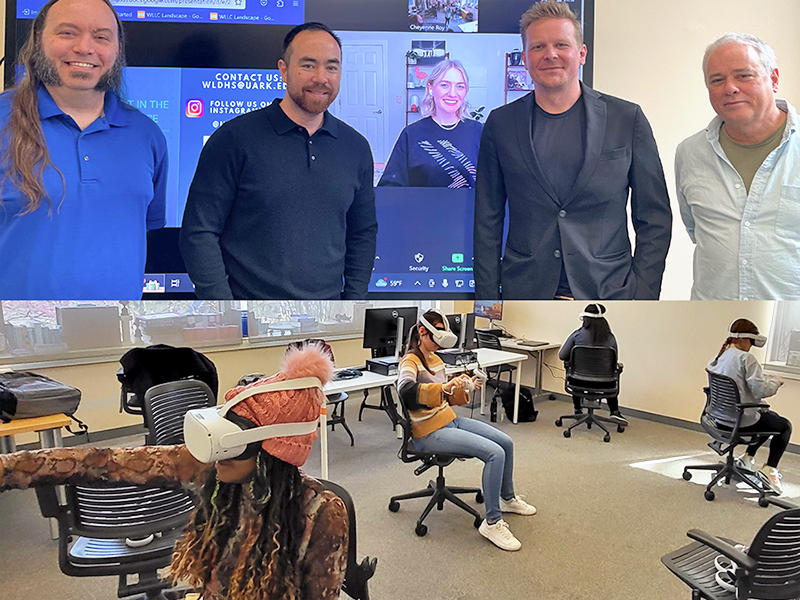
On April 26, the Weekly DH Meet-Up hosted by the World Languages & Digital Humanities Studio was led by a panel of U of A professors alongside professional game designers based in NWA. The panelists explored the creative, cultural, and ethical implications of designing videogames in the context of a continually evolving metaverse.
The panel was moderated by U of A professor and studio director Curtis Maughan. The panel was coordinated in conjunction with professor Maughan's ongoing WLLC course, "Humanities in the Metaverse," which has challenged students to not only grapple with the ethical, aesthetic, and economic issues emerging from the metaverse(s), but also to create metaversal virtual worlds of their own.
Panelists Joe Payne (game designer) and Stephanie Essin (narrative designer) discussed their ongoing development of "Unlimited," an augmented reality game that immerses players in a persistent, virtual world driven by procedural storytelling and Web3 technology. Payne spoke about the potential and benefits of moving towards interoperability in the gaming industry and the advantages this could have for the metaverse. He also discussed the ways in which his game development studio, ULTD, supports independent game designers and developers to contend with the larger game companies. Essin, meanwhile, expanded on how the implementation of AI can create a more interactive and immersive narrative within video game worlds by harnessing natural language processing.
Joshua Rowell, product manager of Mobile Games for Learning at Walmart, discussed the intersection of artificial intelligence with blockchain, metaverse(s), and videogames, with a focus on how people learn in educational, retail, and corporate contexts. Additionally, Rowell spoke about the importance of working with a diverse team in the arena of game development and the positive impacts this has on representation and inclusivity.
U of A professor David Fredrick discussed the educational potential of games and game design in a metaversal context, drawing from his experience in teaching and game development for the classroom.
All panelists discussed how empowering underserved communities can help shape the landscape of game development and provide a stronger platform for all voices and stories to be heard, as well as the need for a multicultural and diverse community to build a more inclusive and accessible metaverse.
Topics
Contacts
Cheyenne Roy, assistant director
World Languages and Digital Humanities Studio
479-575-4159, ceroy@uark.edu